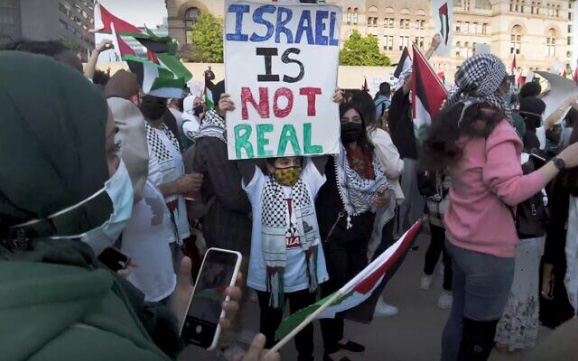In recent months, student protests in response to the Israel-Hamas conflict have emerged on numerous college campuses across the United States. The catalyst for this widespread student activism was the arrest of over 100 demonstrators at Columbia University last week, sparking further protests nationwide. These student groups, although operating independently, share a common goal: urging their universities to sever ties with companies that support Israeli military operations in Gaza, and in some instances, advocating for a complete institutional disassociation from Israel.
At Columbia University in New York, Pro-Palestinian demonstrators established a tent encampment, which police attempted to dismantle, resulting in over 100 arrests. This police action inadvertently galvanized students both at Columbia and across the country, leading to renewed and intensified protests. Following this, Columbia University officials extended the deadline for the encampment's removal, with assurances from protesters to decrease the number of tents and restrict the encampment to students only, alongside commitments to prohibit discriminatory language.
Other universities have seen similar upheavals. The University of Southern California canceled its main graduation ceremony due to safety concerns amid ongoing protests, while the University of Texas experienced a significant police presence during a protest, which was less volatile the following day. At George Washington University, approximately 50 students initiated a tent encampment, advocating for the university to divest from Israeli associations and to reinstate a suspended pro-Palestinian student group.
Additionally, Northwestern University responded to the protests by amending its student code of conduct to prohibit tents on campus, aiming to balance the right to protest with the need to maintain order and continue university operations. Meanwhile, Yale University saw a decrease in protester numbers following arrests for trespassing. Protests have also taken place at the Fashion Institute of Technology, where demonstrators occupied a building and rallied outside, expressing their stance with signs and Palestinian flags.
These protests, varying in scale and intensity, reflect a broader national movement among students advocating for Palestinian causes and broader critiques of institutional affiliations with Israeli operations during the ongoing conflict.
Student activism is a powerful force in shaping public opinion and policy, particularly in matters concerning international conflicts. Recent student protests across U.S. campuses in response to the Israel-Hamas conflict have raised questions about whether similar movements could arise in Canada. This essay explores the nature of student protests at Canadian colleges and universities, examines the potential for similar demonstrations, and provides insights into the factors that could influence such activities in Canada.
Current Landscape of Student Activism in Canada
Canadian universities have a rich history of student activism, with movements focusing on a variety of issues ranging from climate change to indigenous rights and global conflicts. For example, the Boycott, Divestment, Sanctions (BDS) movement has been active in several Canadian universities over the past years, mirroring some of the activism seen in the U.S. However, the scale and frequency of protests related to international conflicts have typically been smaller in Canada.
Factors Influencing Student Protests in Canada
Several factors could determine the likelihood and scale of protests similar to those in the U.S. occurring in Canada:
- Political Climate: Canada's political climate is generally more moderate, with a strong emphasis on multiculturalism and diplomatic conflict resolution. This may influence students to adopt less confrontational tactics in their activism.
- University Policies: Canadian universities often have strict policies regarding on-campus protests, which might deter the scale of demonstrations seen in the U.S. These policies can affect everything from the approval process for gatherings to restrictions on where and how protests can be conducted.
- Student Body Composition: The demographic and cultural composition of the student body can significantly influence the nature of activism. Canadian universities have a diverse international student population, which might lead to a broader range of perspectives and potentially a more balanced view on international conflicts.
- Media Coverage and Public Opinion: The extent and nature of media coverage can also influence student activism. Canadian media might portray international conflicts differently from U.S. media, potentially affecting the level of student engagement and the form it takes.
Historical Precedents
There have been notable instances of student activism in Canada that provide a precedent for the potential of similar protests. Universities such as the University of Toronto, McGill University, and the University of British Columbia have seen various scales of protests concerning global issues. For instance, McGill students have periodically campaigned for the university to divest from certain international investments based on ethical considerations. These precedents suggest a foundational readiness for student activism that could extend to issues like the Israel-Hamas conflict
At BlueSky, we offer our clients unparalleled access to analyst-verified monitoring, actionable intelligence, and proactive insights into protests and potential disruptions in real-time. Our commitment is to deliver intelligence that is not only insightful but also deeply rooted in human expertise. We pride ourselves on delivering intelligence that is insightful and human-centric, because "Our best intelligence is not artificial."
If you have additional questions about this report or would like more information on BlueSky, reach out to our team directly: [email protected]







